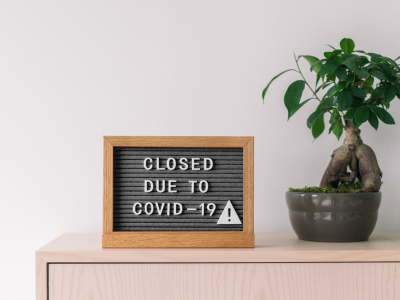On the one-year anniversary of the COVID-19 outbreak, who would have ever thought the words “We are going to work from home for a few weeks” would have sounded so naïve in retrospect.
Those first weeks were chaotic, scary, stressful, and in some cases, resulted in devastating personal and professional losses. But they also were the catalyst to move companies to implement technologies and, more importantly, develop a remote work culture that would likely have taken another decade or more to achieve.
So, what happens now? The genie is so far out of the bottle that flipping a switch and going back to the work and life style that existed in February 2020 seems unfathomable. For example, will we ever shake hands again when we met someone new? Will we all jump back in cars and drive into the rainy Friday afternoon rush hour traffic again? Time will tell, but for right now, it appears that a lot will change.
One of the biggest changes will undoubtedly be the impact on remote work arrangements longer term. There will be changes on both the employer and employee side of the equation. Some employers have abandoned or limited future office space while others want all employees back in the office by a certain date and still many are exploring a hybrid model.

It is time to start thinking about what is the best answer for you. Here are some things to think about in deciding how you want to shape your work situation going forward:
What are your career goals? Doing a great job is always well-regarded, but visibility can also be key to getting promotions or new assignments. As in-person work returns, will those that are not face-to-face not be top of mind for new opportunities?
Are you introvert or an extrovert? Accounting and finance jobs can be very independent roles. Some people need the energy of being around others to give meaning to their work and feel fulfilled. As remote work has lingered on, there has been a significant uptick in depression and fatigue related to lack of real human interaction for those who need it.
As a consultant, are you willing to have downtime between projects? There have always been screening criteria from both a consultant and client perspective that limit the availability of appropriate projects for a consultant. Remote verses non-remote working arrangements will be an additional layer in the criteria that could further limit the availability of projects depending upon an employer’s preference.
How can you make yourself more marketable if you are focused on remote work? If you have decided you are in for remote work, it really does not matter where the project is located, but it does matter where your network is located to connect you with the project. LinkedIn now has a status that lets your prospective network know that you are open to remote work so updating that status is a good place to start. Updating your resume with specific information about remote projects you have completed including technology used, deliverables, communication skills, etc. is also helpful. If your remote work is outside of your home state, do be aware that state tax laws generally require that you are obligated to pay state taxes in the state where you physically perform the work, not where the client is located so make sure the client is withholding taxes appropriately.

The next several months will continue to evolve as the vaccine roll-out continues. It is going to take some physical and mental adjustments, but just like at the beginning of the COVID journey, we have proven to be more flexible and resilient that we could ever have imagined.
Please let us know how the J Curve team can help you during this time by emailing us at info@jcurvellc.com.
J Curve, LLC is a Strategic Partner of Atlanta’s premier accounting and finance recruiting firm, Homrich, Klein & Associates. Visit their website to learn more about our full-time accounting and finance opportunities and retained executive search services.

